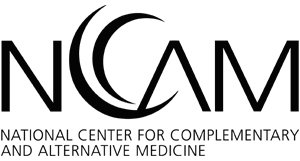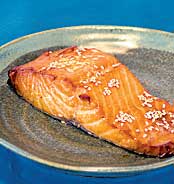 Hot flashes are a common symptom during the menopause transition or following breast cancer treatment.
Hot flashes are a common symptom during the menopause transition or following breast cancer treatment.
During the American Society of Clinical Oncology meeting, researchers at various centers in the US reported their findings. Continue reading Evaluating flaxseed to treat hot flashes →
 Researchers from the Chinese Academy of Sciences, in Shanghai reviewed the evidence. Continue reading Effect of flaxseed on lipids →
Researchers from the Chinese Academy of Sciences, in Shanghai reviewed the evidence. Continue reading Effect of flaxseed on lipids →
 Researchers at Iowa State University’s Nutrition and Wellness Research Center in Ames determined whether the main compound in a flaxseed product, secoisolariciresinol diglucoside, could lower cholesterol.
Researchers at Iowa State University’s Nutrition and Wellness Research Center in Ames determined whether the main compound in a flaxseed product, secoisolariciresinol diglucoside, could lower cholesterol.
Here’s a preview of the results they will present during the American Society for Nutrition’s annual meeting. Continue reading Flaxseed product fails to lower cholesterol in women →
 The effects of taking flaxseed lignan complex during exercise in older adults were studied by researchers at the University of Saskatchewan, Saskatoon. Continue reading Effects of flaxseed on the metabolic syndrome and exercise →
The effects of taking flaxseed lignan complex during exercise in older adults were studied by researchers at the University of Saskatchewan, Saskatoon. Continue reading Effects of flaxseed on the metabolic syndrome and exercise →
 Medscape has published 2 case histories. One patient wants to take flaxseed to improve cholesterol levels and diabetes control. The other has constipation and premenstrual symptoms.
Medscape has published 2 case histories. One patient wants to take flaxseed to improve cholesterol levels and diabetes control. The other has constipation and premenstrual symptoms.
Here’s what we know. Continue reading Flaxseed review →
  Researchers from the Université de Montréal report, “that the risks of a premature birth quadruple if flaxseed oil is consumed in the last 2 trimesters of pregnancy.”
 Researchers from the Université de Montréal report, “that the risks of a premature birth quadruple if flaxseed oil is consumed in the last 2 trimesters of pregnancy.”
The results are scheduled for presentation during the annual meeting of The Teratology Society. Continue reading Safety of flaxseed oil during pregnancy →
 Here’s a follow-up to an earlier post on the use of CAM in the US in 2007 as surveyed by the National Center for Complementary and Alternative Medicine (NCCAM). Continue reading Most commonly used natural products →
Here’s a follow-up to an earlier post on the use of CAM in the US in 2007 as surveyed by the National Center for Complementary and Alternative Medicine (NCCAM). Continue reading Most commonly used natural products →
 Researchers from Oklahoma State University in Stillwater report a positive response in a sea of inconsistency. Continue reading Lowering cholesterol with flaxseed in postmenopausal women →
Researchers from Oklahoma State University in Stillwater report a positive response in a sea of inconsistency. Continue reading Lowering cholesterol with flaxseed in postmenopausal women →
 The National Center for Complementary and Alternative Medicine (NCCAM) reports that approximately 38% of adults and 12% of children use some form of CAM. Continue reading CAM use in the US →
The National Center for Complementary and Alternative Medicine (NCCAM) reports that approximately 38% of adults and 12% of children use some form of CAM. Continue reading CAM use in the US →
 November is diabetes month at the CAM Report.
November is diabetes month at the CAM Report.
Here’s what we covered so far this year. Continue reading CAM and diabetes: A round up of studies from 2008 →
 Researchers from St Boniface Hospital Research Centre in Winnipeg, Manitoba compared whole seed, milled seed, and flaxseed oil. Continue reading Comparing 3 forms of flaxseed →
Researchers from St Boniface Hospital Research Centre in Winnipeg, Manitoba compared whole seed, milled seed, and flaxseed oil. Continue reading Comparing 3 forms of flaxseed →
 MayoClinic.com says, “Studies of the effect of flaxseed on blood sugar levels report mixed results. Flaxseed cannot be recommended as a treatment for diabetes at this time.”
MayoClinic.com says, “Studies of the effect of flaxseed on blood sugar levels report mixed results. Flaxseed cannot be recommended as a treatment for diabetes at this time.”
But that was in February. Now it’s May. And here are the latest findings. Continue reading The latest on flaxseed oil in diabetes →
 This study shows that there are metabolic differences in the way that adolescents with attention-deficit hyperactivity disorder (ADHD) handle dietary fatty acids compared to young people without ADHD. Continue reading Fatty acids and behavior in adolescents with ADHD →
This study shows that there are metabolic differences in the way that adolescents with attention-deficit hyperactivity disorder (ADHD) handle dietary fatty acids compared to young people without ADHD. Continue reading Fatty acids and behavior in adolescents with ADHD →
 One study reports on flax and flaxseed oil in menopausal women, the second conducts a general review of the literature.
One study reports on flax and flaxseed oil in menopausal women, the second conducts a general review of the literature.
One study is positive; the other is not. Continue reading Flaxseed for menopausal symptoms and more →
 Alpha-linolenic acid is an omega-3 fatty acid found in many vegetable oils, including flaxseed, walnuts, and canola oil.
Alpha-linolenic acid is an omega-3 fatty acid found in many vegetable oils, including flaxseed, walnuts, and canola oil.
Researchers from the Centers for Disease Control and Prevention in Maryland reviewed data from the National Health and Nutrition Examination Survey (NHANES). They focused on adults with diabetes who were evaluated for peripheral neuropathy. Continue reading Linolenic acid lowers the risk of peripheral neuropathy in diabetics →
 Two omega-3 fatty acids, eicosapentaenoic acid (EPA) and docosahexaenoic acid (DHA) have a number of positive actions against atherosclerosis (hardening of the arteries) and its complications.
Two omega-3 fatty acids, eicosapentaenoic acid (EPA) and docosahexaenoic acid (DHA) have a number of positive actions against atherosclerosis (hardening of the arteries) and its complications.
An article by the Nutrition Committee of the American Heart Association documents the benefits, with dosing details.
Continue reading Reviewing the benefits and dosing recommendations for omega-3 →
 The INTERMAP study (INTERnational collaborative of MAcronutrients and blood Pressure) examines correlations between nutrients and worldwide patterns of blood pressure.
The INTERMAP study (INTERnational collaborative of MAcronutrients and blood Pressure) examines correlations between nutrients and worldwide patterns of blood pressure.
The abstract is obtuse, but Medscape has a decent review. Continue reading Effect of dietary omega-3 fatty acid on blood pressure: The INTERMAP study. →
 Omega-3 fatty acids benefit the heart of healthy people, and those who are at high risk of heart disease or already have it. And I suppose when it becomes a prescription drug, it’s no longer complementary but integrated into mainstream medicine.
Omega-3 fatty acids benefit the heart of healthy people, and those who are at high risk of heart disease or already have it. And I suppose when it becomes a prescription drug, it’s no longer complementary but integrated into mainstream medicine.
So, here’s one last (maybe) entry on N-3 PUFA (omega-3) taken from the American Heart Association (AHA).
Continue reading Recommendations for taking omega-3 fatty acids →
Complementary and Alternative Medicine: Fair, Balanced, and to the Point
 Hot flashes are a common symptom during the menopause transition or following breast cancer treatment.
Hot flashes are a common symptom during the menopause transition or following breast cancer treatment.
 Medscape has
Medscape has   Researchers from the Université de Montréal
 Researchers from the Université de Montréal  Here’s a follow-up to an earlier
Here’s a follow-up to an earlier  Researchers from Oklahoma State University in Stillwater
Researchers from Oklahoma State University in Stillwater  November is diabetes month at the CAM Report.
November is diabetes month at the CAM Report. MayoClinic.com
MayoClinic.com  This
This  Two omega-3 fatty acids, eicosapentaenoic acid (EPA) and docosahexaenoic acid (DHA) have a number of positive actions against atherosclerosis (hardening of the arteries) and its complications.
Two omega-3 fatty acids, eicosapentaenoic acid (EPA) and docosahexaenoic acid (DHA) have a number of positive actions against atherosclerosis (hardening of the arteries) and its complications. The INTERMAP study (INTERnational collaborative of MAcronutrients and blood Pressure) examines correlations between nutrients and worldwide patterns of blood pressure.
The INTERMAP study (INTERnational collaborative of MAcronutrients and blood Pressure) examines correlations between nutrients and worldwide patterns of blood pressure.